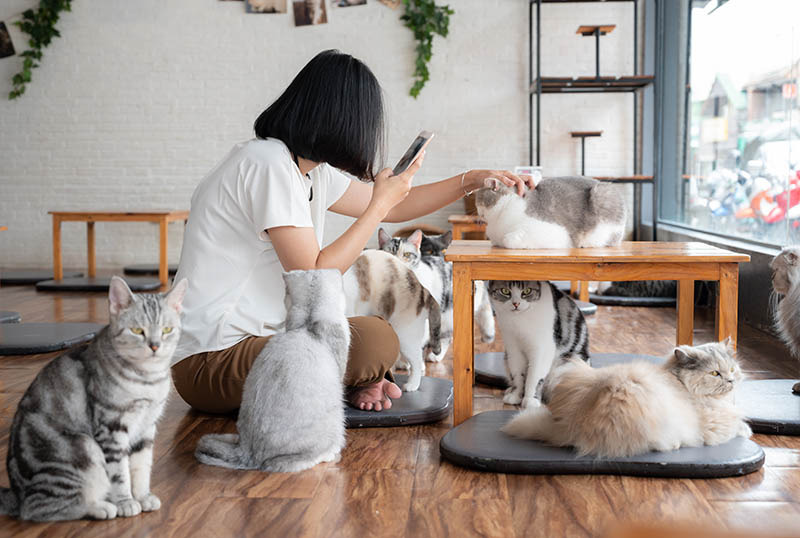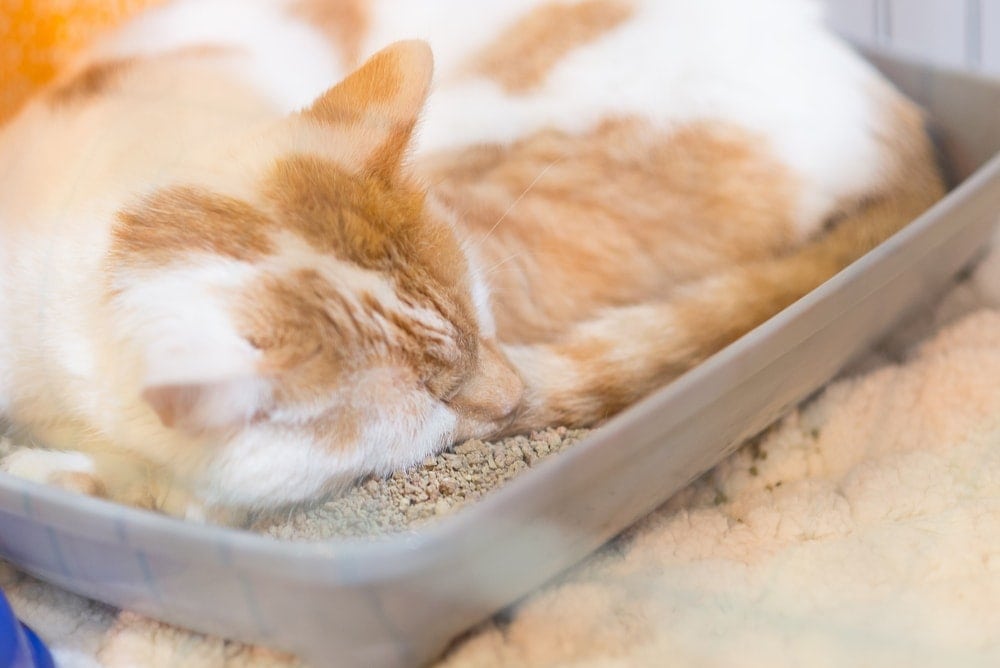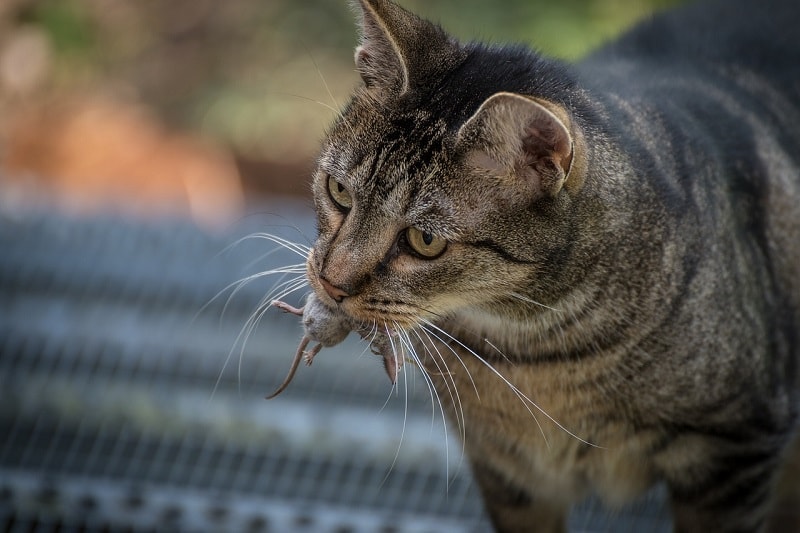Why Are My Cats Fighting All of a Sudden? 9 Possible Reasons

Updated on
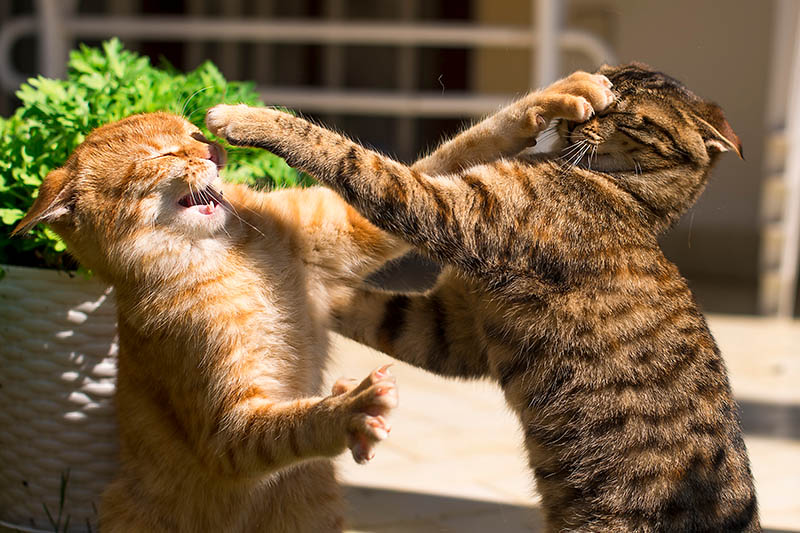
Many people think that having multiple cats is a case of the more the merrier, but it can actually be the opposite. Cats usually prefer to live by themselves and having to live with another feline companion can cause considerable stress. However, there are those that seem to live happily with other cats. There are also times when previously happy felines can suddenly begin lashing out at each other. So what’s going on?
If your usually docile cats have started fighting all of a sudden, there could be several reasons why. Maybe there’s a new cat in the neighborhood that they feel territorial about. Or, if you’ve recently moved, they could be feeling stressed and uncertain in their new environment. Cats also communicate through body language and scent, so if something has changed in their routine (like a new baby in the house) that could be causing tension.
A sudden increase in fighting among cats in a home can be alarming and upsetting to pet parents. If you have noticed that your cats are clashing recently, read on to find out what the cause may be.
The 9 Possible Reasons Why Your Bonded Cats Are Fighting All of a Sudden
1. Scent
When two cats meet for the first time, they will usually “greet” each other by sniffing each other and rubbing faces. This may progress to sniffing behinds. This is because the scent glands in their behinds secrete chemicals that communicate information about each individual cat. Pheromones are also released from cheek scent glands and in urine giving information about reproductive status. If both cats are of the same sex and not in heat, they will usually get along fine.
If your cat’s scent has changed because their reproductive status has changed such as puberty or coming into heat this could trigger fighting. Additionally if one of the cats has been to stay at the veterinary clinic, groomer or cattery their scent may have changed temporarily resulting in the other cats not recognizing them correctly.
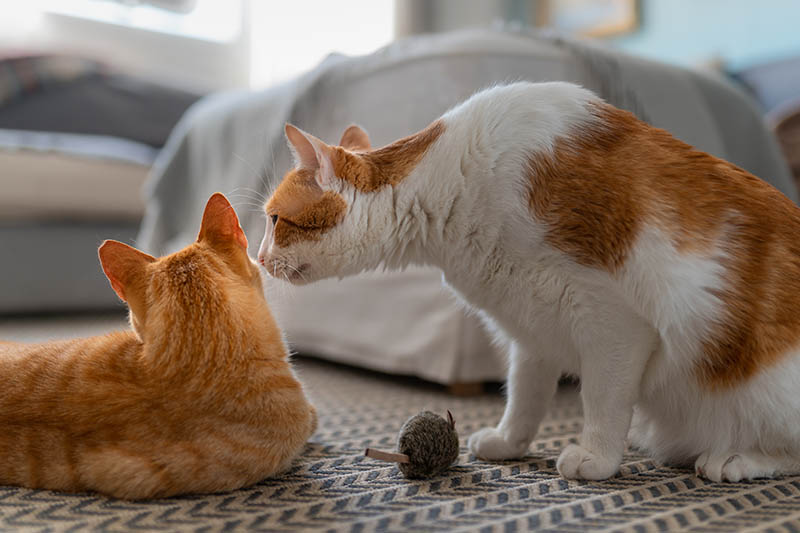
2. Lack of Resources
When cats don’t have enough food, water, or litter boxes, they may start to fight. This is because they’re trying to protect their resources. Cats are natural predators and are wired to compete with each other for survival. If you have more than one cat, it’s important to make sure they have enough resources. Otherwise, you may start to see fighting and aggression. To avoid this, provide your cats with plenty of food, water, and litter boxes. Food and water should be provided in separate rather than attached bowls and there should be one litter box per cat and one extra.
3. Bringing New Cats into Your House
Cats are territorial creatures, and when a new cat enters their territory, it can be a big stressor. This may cause existing cats to start fighting with each other. If you’re thinking of adding a new cat to your home, it’s important to introduce them slowly and carefully. Give the new cat their own space at first, and let the existing cats get used to their scent before letting them interact. With a little patience and care, you can help reduce the stress of adding a new cat to your home and avoid any potential fights between your furry friends. Practice scent swapping where you rub a piece of material on the new cat and leave it with the existing cats to investigate and vice versa.
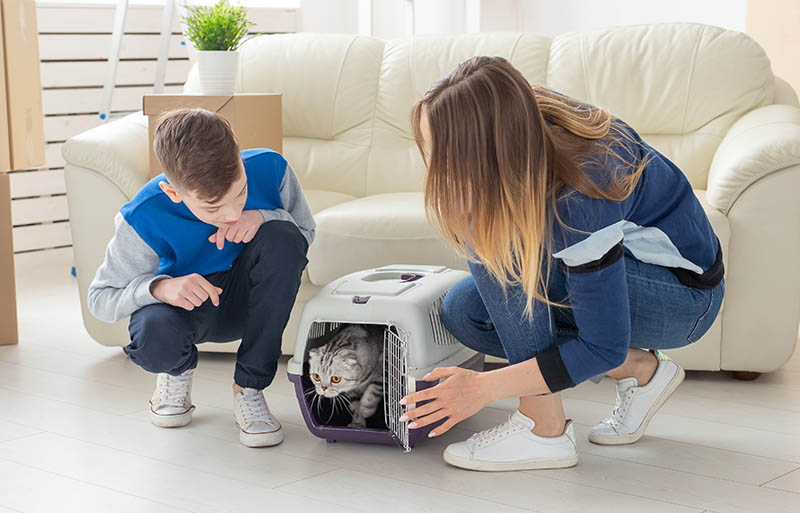
4. Jealousy
While some cats can coexist peacefully, others seem to constantly be at each other’s throats. If you find yourself dealing with a lot of fighting between your cats, it might be because one of them feels left out or ignored. Cats that are very bonded to their owner may need attention and affection from their humans to feel happy and secure. If they feel like they’re being neglected in favor of another cat, they may show jealous type behavior and start lashing out at the other cats in the household. It is not thought that cats feel jealousy the same way as humans but that it is more related to a territorial feeling of, that human is mine!
If you want to avoid this kind of conflict, it’s important to make sure that all of your cats are getting equal attention. Spend time playing with each of them individually, and give them lots of love and cuddles.
5. Separation Anxiety
If you’ve recently started spending more time away from home, your cat may become anxious and take it out on other cats. Cats are creatures of routine, so when they suddenly find themselves alone, they can become anxious and stressed. This can lead to them lashing out at other cats in the household. If you notice your cat starting to fight with other cats more often, it may be a sign of separation anxiety.
To help ease your cat’s anxiety contact your veterinary surgeon for advice.
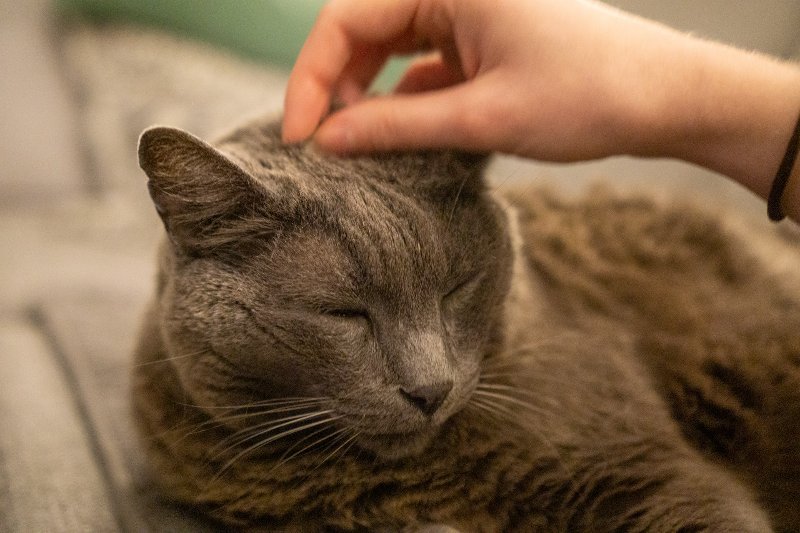
6. Sickness
When a cat is sick, it may act out aggressively toward other cats. This is because they feel weak and vulnerable, and their natural instinct is to protect themselves. If you have multiple cats in your home and one of them is sick, make sure that each cat has their own food and water bowl so they don’t have to compete for resources. You may need to separate the sick cat until the situation settles. Offer hiding spaces up high for them to retreat.
7. Boredom
Cats can get bored just like people, and when they’re bored, they may start picking fights with other cats. But don’t worry! There are ways to keep your cats from getting bored and prevent them from fighting. First, make sure your cats have plenty of toys to keep them amused. Rotate their toys so they don’t get bored with the same ones day after day. In addition to providing them with toys and puzzles, make sure your cats have plenty of places to hide and climb. Cats love to explore, so give them lots of opportunities to do so.
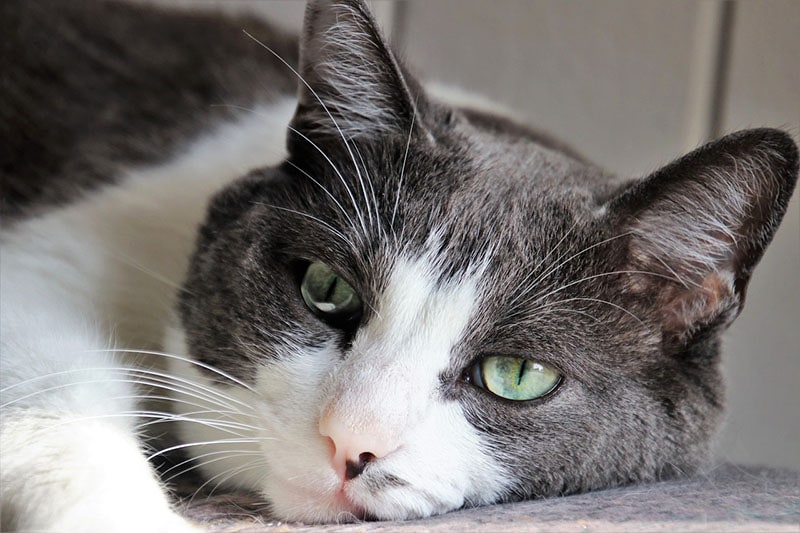
8. Lack of Space
Your home may be feeling cramped, which could lead to tension between your cats and result in fighting. Cats are territorial animals and need their own space to feel safe and secure. When they don’t have enough space, they may start to feel anxious and stressed, which can lead to aggression. If you’re noticing your cats fighting more often, it may be time to give them some more room.
9. Play Fighting
While it is perfectly normal for cats to play-fight, make sure that both cats are enjoying the game and aren’t getting too rough with each other. If one of the cats seems to be getting agitated or doesn’t want to play anymore, it’s time to stop. Keep an eye on the body language of both cats. If they start to hiss or growl at each other, or if their ears go back flat against their head, that’s a sign that they’re no longer playing and are starting to get aggressive. You’ll need to separate them and give them a break from each other.
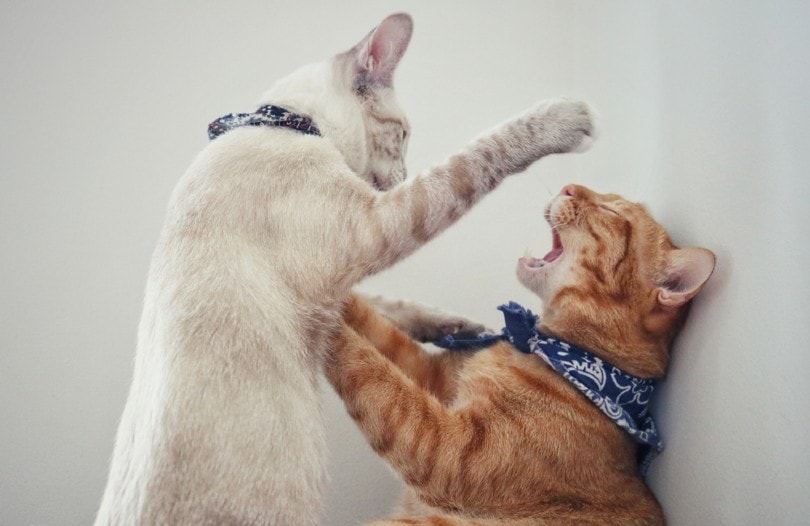
Conclusion
In conclusion, there are a few possible reasons why your cats are fighting all of a sudden. It could be due to a change in their environment, such as a new pet or baby in the house. It could also be because one of the cats is feeling ill, and the other is trying to assert dominance. Lastly, they may simply be bored and looking for something to do. If your cats are fighting, try to figure out the root cause and take steps to fix it. And if all else fails, consult a vet or registered animal behaviorist to help get to the bottom of things.
See also:
Featured Image Credit: Mariya Ilmaz, Shutterstock


